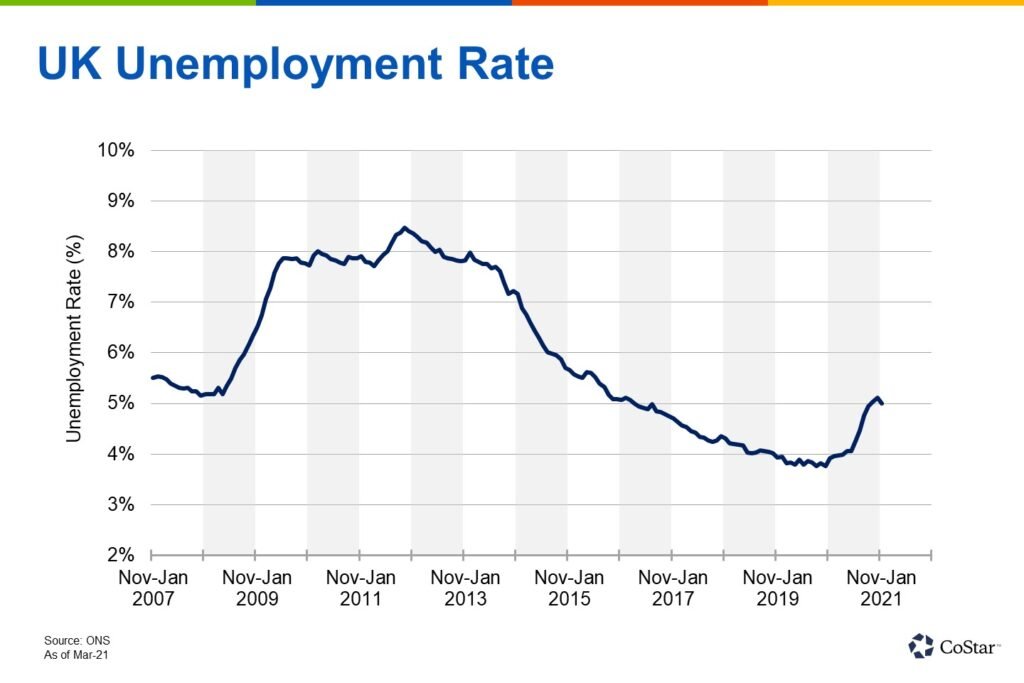
Understanding and Addressing UK Unemployment Rates in 2024

Understanding UK Unemployment Rates in 2024
Unemployment rates are a crucial indicator of a country’s economic health and the well-being of its citizens. In this blog post, we will delve into the unemployment rates in the United Kingdom in 2024, analyzing the factors that contribute to these rates and the impact they have on the nation.
The State of UK Unemployment in 2024
As we step into 2024, the United Kingdom is facing a unique set of challenges that have had a significant impact on its unemployment rates. The COVID-19 pandemic, coupled with the uncertainties surrounding Brexit, has created a complex economic landscape.
It is important to note that the accuracy of unemployment data can vary, and the figures provided here are based on the latest available information at the time of writing. The Office for National Statistics (ONS) is responsible for collecting and publishing these statistics.
In the first quarter of 2024, the UK unemployment rate stood at 5.2%. This represents a slight increase compared to the previous year, primarily attributed to the ongoing effects of the pandemic and the adjustments made in various sectors to adapt to the post-Brexit environment.
Factors Influencing UK Unemployment Rates
Several factors contribute to the unemployment rates in the United Kingdom. Understanding these factors is essential to comprehend the dynamics at play and to identify potential solutions.
1. Economic Growth and Recession
Economic growth is a crucial driver of job creation and reduced unemployment rates. When the economy is thriving, businesses expand, invest, and hire more employees. Conversely, during a recession, businesses may downsize, leading to job losses and higher unemployment rates.
In 2024, the UK economy is projected to experience moderate growth, which should have a positive impact on the labor market. However, the lingering effects of the pandemic and the uncertainties surrounding Brexit may dampen the pace of recovery.
2. Technological Advancements and Automation
The rapid advancement of technology has transformed various industries, leading to increased automation and job displacement. While technological progress brings numerous benefits, it also presents challenges, particularly for individuals in roles that can be easily automated.
In 2024, the UK is expected to witness further technological advancements, which may impact certain sectors and result in job losses. However, it is important to note that technological progress also creates new job opportunities, and upskilling and reskilling programs can help individuals transition into these emerging roles.
3. Education and Skills Gap
The availability of a skilled workforce is crucial for economic growth and reducing unemployment rates. However, there is often a disconnect between the skills possessed by job seekers and those demanded by employers.
In 2024, the UK faces a significant skills gap in certain industries, such as technology and healthcare. Addressing this gap requires a collaborative effort between educational institutions, employers, and policymakers to ensure that individuals are equipped with the skills needed to thrive in the evolving job market.
The Impact of Unemployment
Unemployment has far-reaching consequences that extend beyond the individuals directly affected. It affects the overall economy, social fabric, and mental well-being of the nation.
1. Economic Impact
High unemployment rates can strain the economy, as individuals without jobs have reduced purchasing power, leading to decreased consumer spending. This, in turn, can negatively impact businesses, resulting in lower profits and potential closures.
Furthermore, unemployment can lead to increased government spending on welfare programs and unemployment benefits, putting additional strain on public finances.
2. Social Impact
Unemployment can have a profound social impact, affecting individuals and their families. It can lead to feelings of despair, low self-esteem, and increased stress levels. These emotional and psychological effects can strain relationships and contribute to social unrest.
In 2024, it is crucial for the UK government and society as a whole to prioritize supporting individuals who are unemployed, providing them with resources and opportunities to regain their financial independence and well-being.
3. Mental Health and Well-being
Unemployment is closely linked to mental health issues, including depression, anxiety, and a sense of hopelessness. The stress and uncertainty of unemployment can take a toll on individuals, exacerbating existing mental health conditions and even leading to new ones.
Recognizing the impact of unemployment on mental health, it is essential to prioritize accessible mental health support services and initiatives that promote overall well-being.
Addressing Unemployment in 2024
Tackling unemployment requires a multi-faceted approach that encompasses various stakeholders and strategies. Here are a few key areas that can contribute to reducing unemployment rates in the United Kingdom:
1. Job Creation and Economic Stimulus
Government initiatives aimed at stimulating economic growth and job creation can play a vital role in reducing unemployment rates. This can include investing in infrastructure projects, supporting small and medium-sized enterprises, and incentivizing industries with high growth potential.
2. Education and Training Programs
Investing in education and training programs that align with the evolving job market is crucial for equipping individuals with the skills needed to secure employment. Collaboration between educational institutions and employers can help bridge the skills gap and ensure that individuals are prepared for the jobs of the future.
3. Support for Entrepreneurs and Small Businesses
Entrepreneurship and small businesses are often drivers of job creation. Providing support and resources for individuals looking to start their own businesses can contribute to reducing unemployment rates. This can include access to funding, mentorship programs, and simplified regulatory processes.
4. Mental Health Support
Recognizing the impact of unemployment on mental health, it is crucial to prioritize accessible mental health support services. This can include counseling services, helplines, and initiatives that promote overall well-being.
Conclusion
As we navigate the complexities of the post-pandemic and post-Brexit era, understanding and addressing unemployment rates in the United Kingdom is of utmost importance. By focusing on economic growth, technological advancements, education, and mental health support, we can strive to reduce unemployment rates and create a more prosperous and inclusive society.

